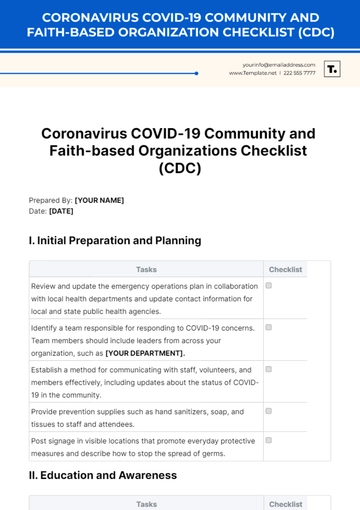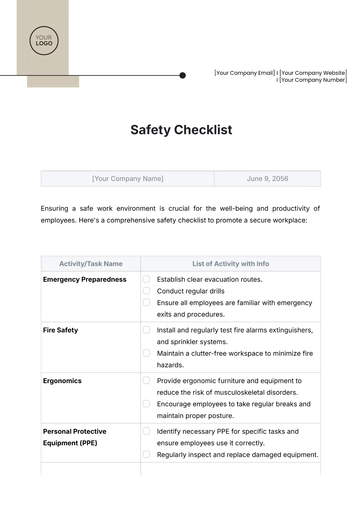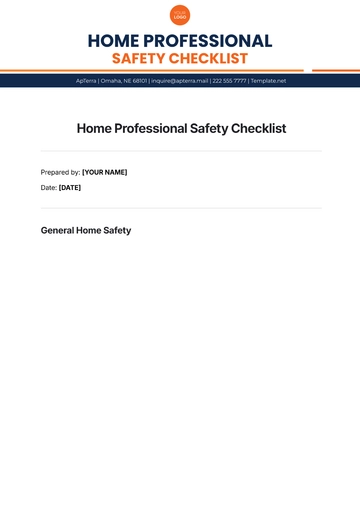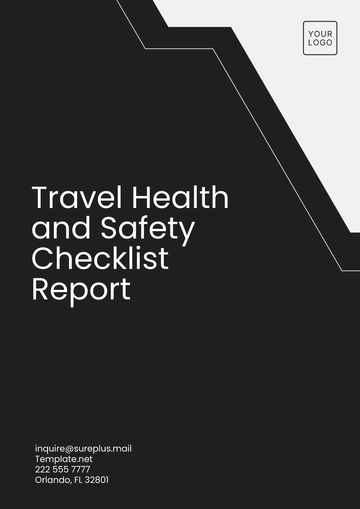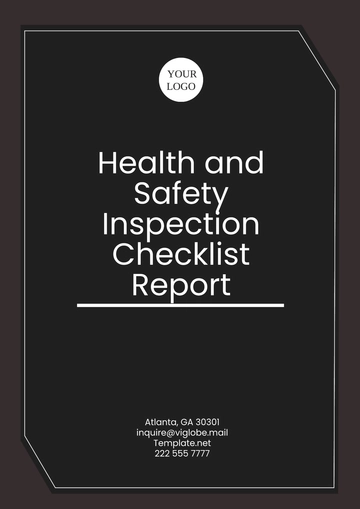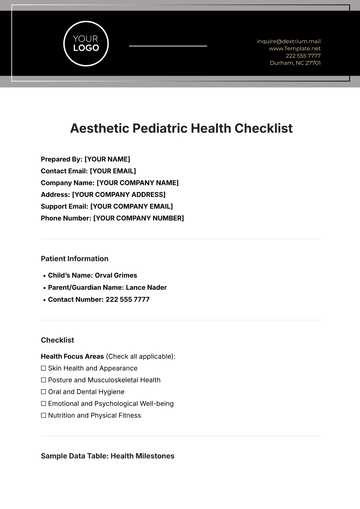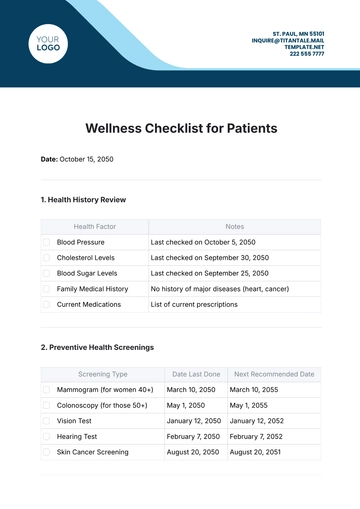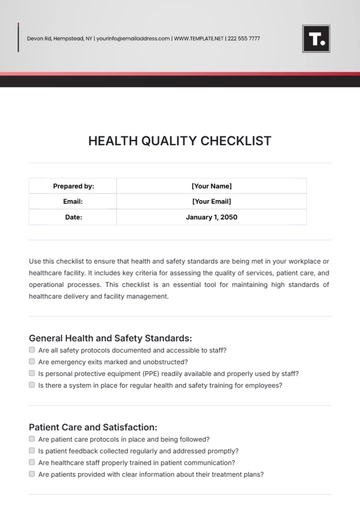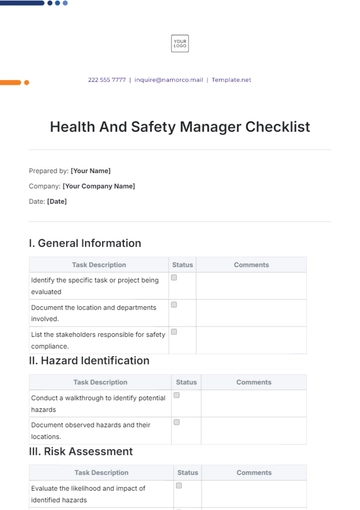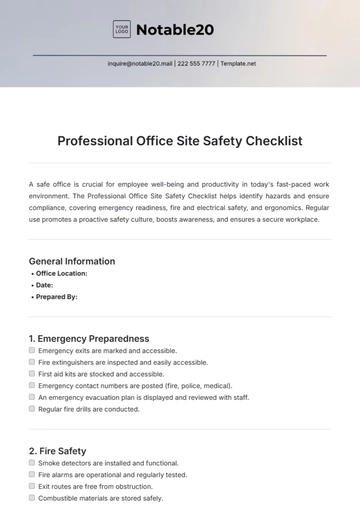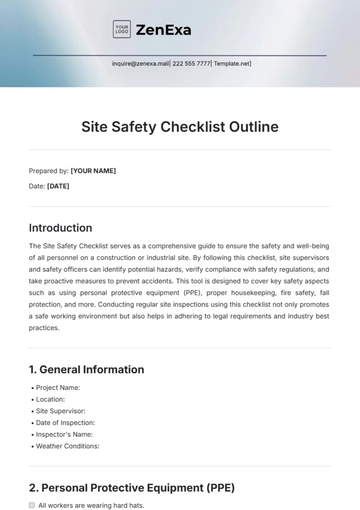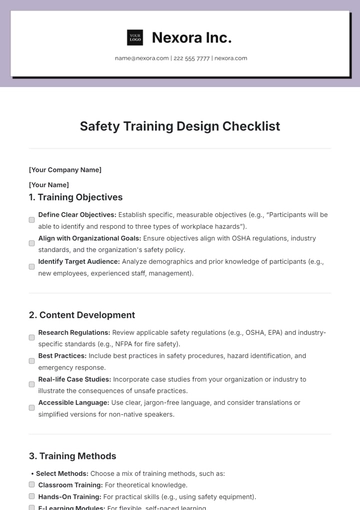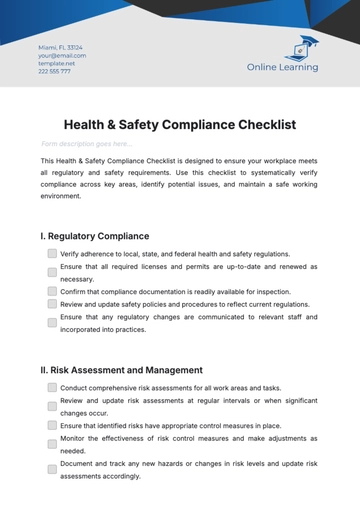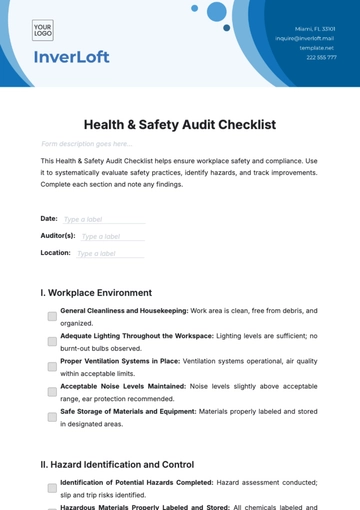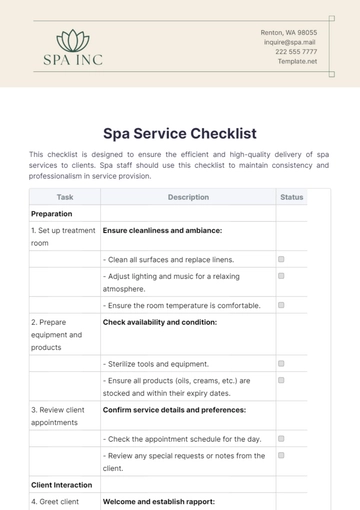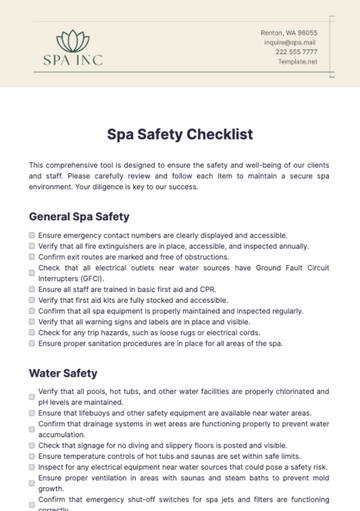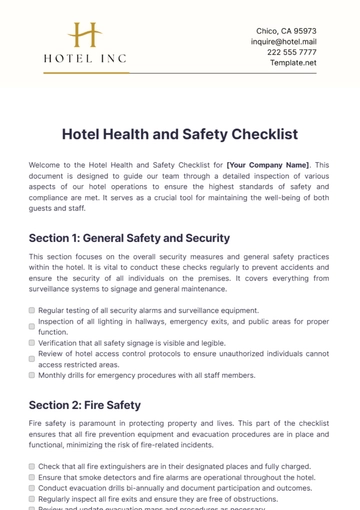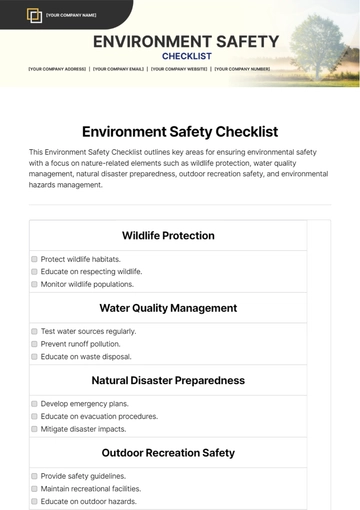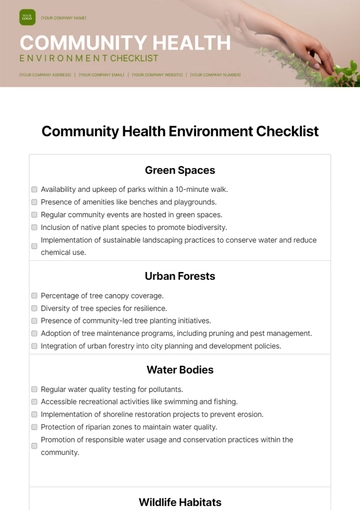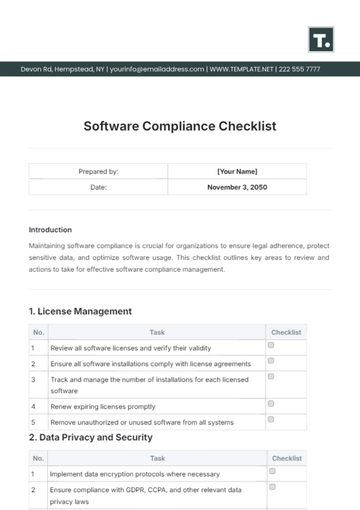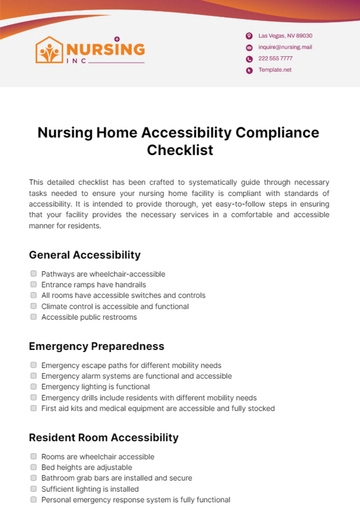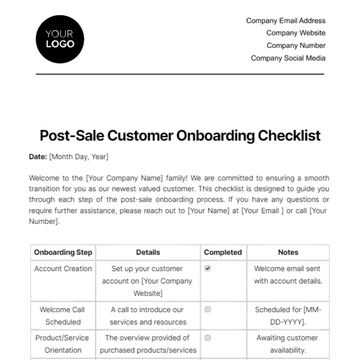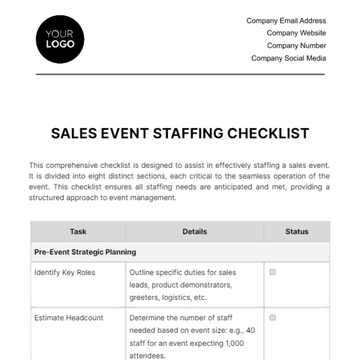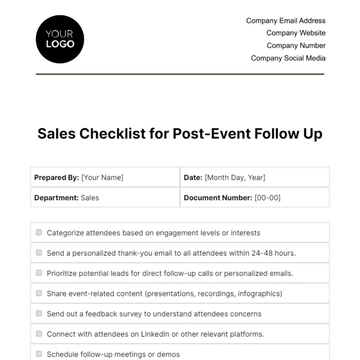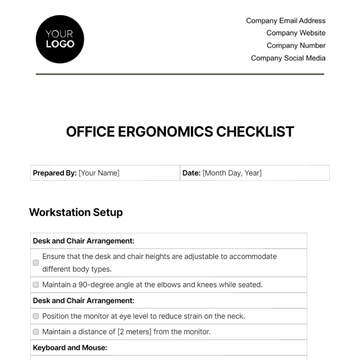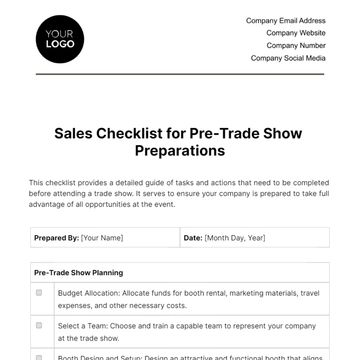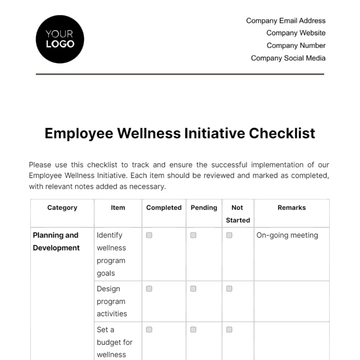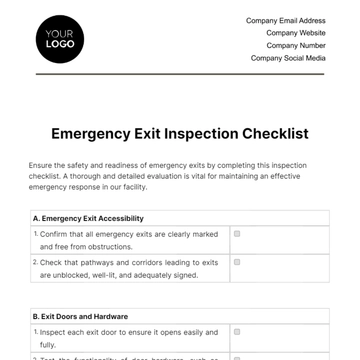Free Professional Office Site Safety Checklist
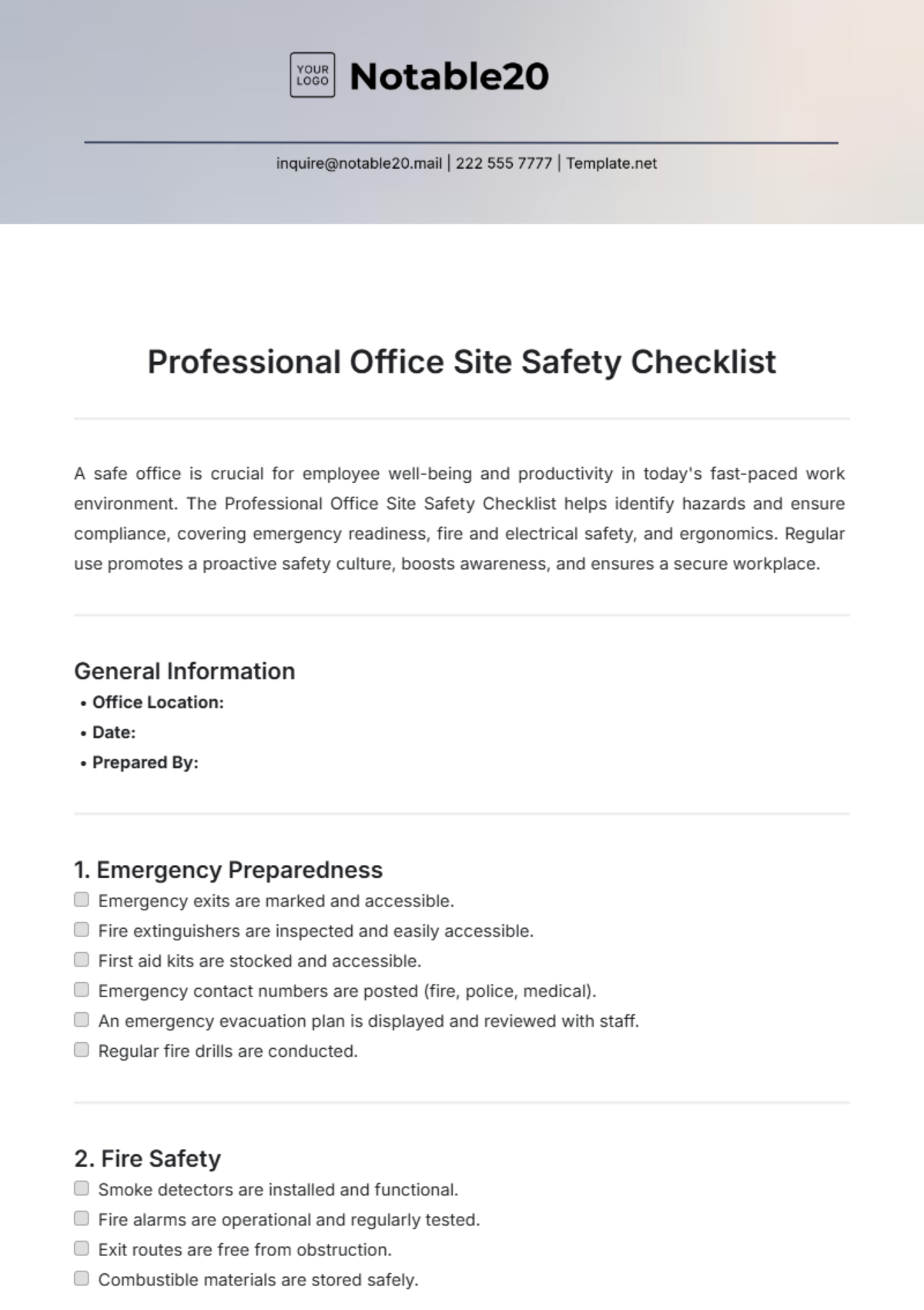
A safe office is crucial for employee well-being and productivity in today's fast-paced work environment. The Professional Office Site Safety Checklist helps identify hazards and ensure compliance, covering emergency readiness, fire and electrical safety, and ergonomics. Regular use promotes a proactive safety culture, boosts awareness, and ensures a secure workplace.
General Information
Office Location:
Date:
Prepared By:
1. Emergency Preparedness
Emergency exits are marked and accessible.
Fire extinguishers are inspected and easily accessible.
First aid kits are stocked and accessible.
Emergency contact numbers are posted (fire, police, medical).
An emergency evacuation plan is displayed and reviewed with staff.
Regular fire drills are conducted.
2. Fire Safety
Smoke detectors are installed and functional.
Fire alarms are operational and regularly tested.
Exit routes are free from obstruction.
Combustible materials are stored safely.
3. Electrical Safety
All electrical equipment is in good condition.
Power cords are not frayed or damaged.
Electrical outlets are not overloaded.
Circuit breakers are labeled and accessible.
4. Office Ergonomics
Workstations are set up to minimize strain (e.g., chair height, monitor level).
Employees are trained in proper ergonomic practices.
Adjustable chairs and desks are available.
5. General Housekeeping
Floors are clean and free of debris.
Spills are cleaned immediately.
Clutter is minimized in work areas.
Trash is disposed of properly and regularly.
6. Personal Protective Equipment (PPE)
Appropriate PPE is available and used when necessary (e.g., gloves, safety glasses).
Employees are trained on the proper use of PPE.
7. Security Measures
Access control measures are in place (e.g., key cards, visitor logs).
Emergency lighting is operational.
Surveillance cameras are functional and monitored.
8. Workplace Hazards
Hazardous materials are labeled and stored correctly.
Safety data sheets (SDS) are available for all hazardous substances.
Staff are trained in recognizing and reporting hazards.
9. Health and Hygiene
Cleanliness standards are maintained in kitchens and restrooms.
Hand sanitizers are available in common areas.
Employees are encouraged to report illness and stay home when unwell.
10. Incident Reporting
An incident reporting procedure is established and communicated.
All incidents are documented and investigated.
Follow-up actions are taken to prevent future incidents.
Sign-Off
Prepared By:
Reviewed By:
Date of Review:
- 100% Customizable, free editor
- Access 1 Million+ Templates, photo’s & graphics
- Download or share as a template
- Click and replace photos, graphics, text, backgrounds
- Resize, crop, AI write & more
- Access advanced editor
You may also like
- Cleaning Checklist
- Daily Checklist
- Travel Checklist
- Self Care Checklist
- Risk Assessment Checklist
- Onboarding Checklist
- Quality Checklist
- Compliance Checklist
- Audit Checklist
- Registry Checklist
- HR Checklist
- Restaurant Checklist
- Checklist Layout
- Creative Checklist
- Sales Checklist
- Construction Checklist
- Task Checklist
- Professional Checklist
- Hotel Checklist
- Employee Checklist
- Moving Checklist
- Marketing Checklist
- Accounting Checklist
- Camping Checklist
- Packing Checklist
- Real Estate Checklist
- Cleaning Checklist Service
- New Employee Checklist
- Food Checklist
- Home Inspection Checklist
- Advertising Checklist
- Event Checklist
- SEO Checklist
- Assessment Checklist
- Inspection Checklist
- Baby Registry Checklist
- Induction Checklist
- Employee Training Checklist
- Medical Checklist
- Safety Checklist
- Site Checklist
- Job Checklist
- Service Checklist
- Nanny Checklist
- Building Checklist
- Work Checklist
- Office Checklist
- Training Checklist
- Website Checklist
- IT and Software Checklist
- Performance Checklist
- Project Checklist
- Startup Checklist
- Education Checklist
- Home Checklist
- School Checklist
- Maintenance Checklist
- Planning Checklist
- Manager Checklist
- Wedding Checklist
- Vehicle Checklist
- Travel Agency Checklist
- Vehicle Inspection Checklist
- Interior Design Checklist
- Backpacking Checklist
- Business Checklist
- Legal Checklist
- Nursing Home Checklist
- Weekly Checklist
- Recruitment Checklist
- Salon Checklist
- Baby Checklist
- Equipment Checklist
- Trade Show Checklist
- Party Checklist
- Hospital Bag Checklist
- Evaluation Checklist
- Agency Checklist
- First Apartment Checklist
- Hiring Checklist
- Opening Checklist
- Small Business Checklist
- Rental Checklist
- College Dorm Checklist
- New Puppy Checklist
- University Checklist
- Building Maintenance Checklist
- Work From Home Checklist
- Student Checklist
- Application Checklist
